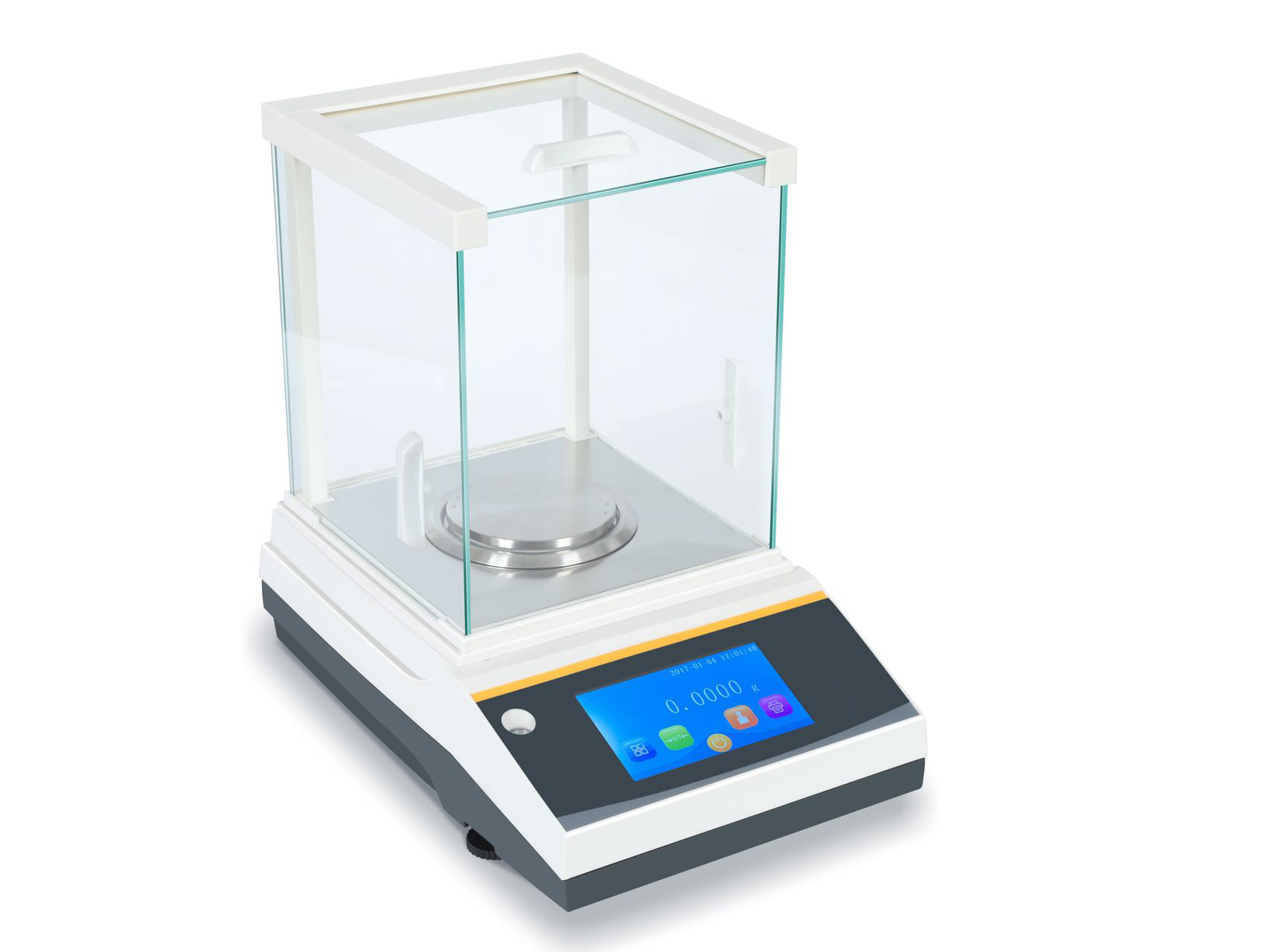An electronic balance is often synonymous with precision measurements. Analog mechanical balances directly use the downforce of an object to measure its weight. But electronic balances translate the downforce into electrical signals and show the precise weight measurement on a display.
But what is an electronic balance used for? Electronic balances are used for a variety of purposes, including chemical research, lab experiments, pharmaceutical applications, food production, and more. We will introduce to you the basic working mechanism of electronic balances and their common use cases. Let’s delve into the fascinating world of precision measurement and see how electronic balances help you obtain the exact weight you need.
What Is an Electronic Balance?
As the name suggests, an electronic balance is a device that uses electricity to measure the mass of any object. Electronic balances are commonly used for small masses, but their tolerance can be much higher. They can measure the mass of an object precisely to the thousandth of a gram.
Electronic balances are mainly of two types, electromagnetic and load cell. A load cell or electrical resistance balance is more common in real-world applications. These balances have a stain gauge and load cell.
The strain gauge measures the load on the load cell. A change in the load changes the electrical resistance. The balance shows the translated mass of the object in the unit you opt for.

What Is an Electronic Balance Used for?
Electronic balances have many applications. Here is a detailed overview of some common applications.
Physics Lab Experiments
Various physics experiments require measuring the mass of objects associated with the experiment. For example, measuring the density of different elements requires measuring their masses. Electronic balances come in handy to measure the mass of different objects or elements.
As unit conversions are built into electronic balances, researchers don’t need to face any hassle regarding the conversion. They can readily see the measurement in the desired unit.
Chemical Research
All chemical reactions require specific masses of elements or compounds. Putting the right amount of chemicals together is crucial for overall safety and the accuracy of the result. So, chemical researchers benefit a lot from electronic balances.
Another huge benefit of electronic balances in chemical research is the sensitivity. Electronic balances can precisely measure as little as 0.001 g or even less. Measuring a tiny amount of chemical becomes much easier with electronic balances.
Chemical Production
In the production scenario, chemicals are measured on a much higher scale. Regardless of the quantity, the precision of the mass has the same importance here. So, chemical production processes often use electronic balances.
The electronic balances for chemical production have a higher range of measurement. At Weighing Instrument Co, we offer electronic balances that can measure from a thousandth of a gram to a few thousand grams.
Pharmaceutical Applications
The use of electronic balances in pharmaceuticals is undeniable. Manufacturing medicine requires high precision as medicine components are often measured in mg. With an electronic balance, measuring objects on such a smaller scale is a breeze. As users can choose the unit of mass from different options, electronic balances are suitable for use in any country.
Food Production
Think of highly popular recipes around the world, such as the Coca-Cola, or the Kentucky Fried Chicken. Each ingredient in the recipe should have a very precise mass to go into the production. Food factories commonly use electronic balances to accurately measure ingredients in their recipes.
Electronic balances ensure the ingredients are accurate to the smallest unit so that the final result of the food production can retain the authentic taste.
Precious Metal and Stone Business
Gold is one of the most precious metals on earth. Thousands of grams of gold transactions take place around the world every day. Each of these transactions requires a precise mass measurement. Measuring gold with analog balances can be misguiding.
Traditional balances measure the weight of the object. But, electronic balances accurately measure the mass. So, gold businesses use electronic balances to measure gold mass to the very milligram.
Other than gold, many metals and stones, such as titanium, diamond, etc., are also measured using electronic balances.
Educational Use
This is just an extended part of the physical or chemical experiments in the lab. Students in schools and colleges use electronic balances for different experiments. This makes them more familiar with the process and importance of precision measurements.
Conclusion
As an electronic balance is a lot more sensitive than traditional weight balances, electronic balances are used in more sophisticated measurement settings. For example, lab experiments, food production, chemical engineering, pharmaceuticals, and many other industries use electronic balances.
High sensitivity, reliability, and durability make electronic balances the most useful mass measurement device for real-life applications. Weighing Instrument Co. proudly offers customizations to match the needs of customers.